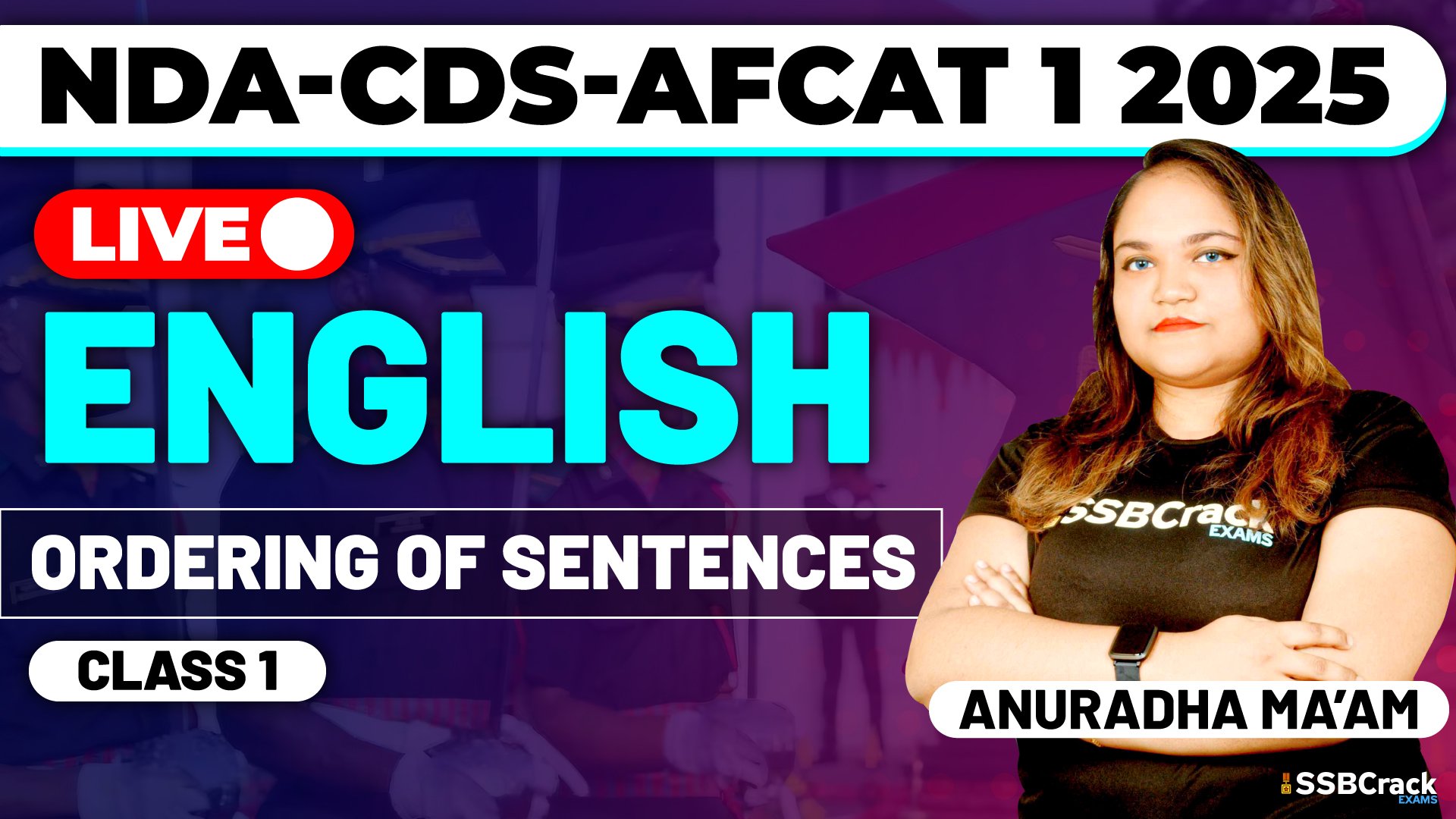The Ordering of Sentences topic holds significant weight in the English sections of exams like NDA, CDS, and AFCAT. Questions on this topic require candidates to arrange disorganized sentences into a coherent paragraph, assessing their logical thinking, comprehension, and grasp of flow within a passage. These questions demand both strong reading skills and strategic methods for identifying connections among sentences.
In this topic, advanced reading skills are paramount. Candidates must analyze each sentence’s core message, identify key details or themes, and determine how each idea builds upon the previous one. Success relies on a candidate’s ability to detect introductory statements, transitional cues, and concluding sentences, ensuring each sentence logically follows the next to form a meaningful paragraph. Knowledge of sentence transitions and connectors is also invaluable, as it aids in discerning the natural flow within the passage.
Strategic approaches are equally essential. Techniques such as looking for keywords, recognizing chronology, and spotting cause-and-effect relationships help in rapidly narrowing down possible arrangements. Additionally, identifying pronouns and their antecedents or linking sentences through conjunctions can streamline the ordering process. These skills make candidates more efficient, allowing them to navigate the questions confidently and accurately.
In Ordering of Sentences Class 1, I conducted an MCQ session to enhance these skills, where candidates practiced solving key questions to reinforce the strategies needed for this topic. Through these exercises, candidates honed their ability to structure a passage logically, working through various approaches to determine the optimal order of sentences.
Directions: In each of the following questions, the first and the last parts of the passage are numbered S1 and S6. The rest of the passage is split into four parts and named P, Q, R and S. These four parts are not given in their proper order. Read the sentences and find out which of the four combinations is correct. Then find the correct answer.
Q) S1: A certain young man was entrusted to the care of a teacher.
P : ‘This dullard will come to grief, if i send him away without a single lesson’, thought the teacher.
Q : He was so dull of the mind that he could not, even in three months’ time, learn as much as a single lesson.
R : The young man came to ask the teacher’s permission to go home.
S : “It’s my business to provide a good education to my pupils to get on in life.”
S6 : The teacher asked him to wait.
(a) QPSR (b) PSRQ (c) SRQP (d) RQPS
Ans. (a)
Q) S1 : Gandhiji’s first political fast was made soon after his return from Africa.
P : He had also received help from their man’s sister.
Q : This was when the poor labourers of the cotton mills of Ahmedabad were on strike.
R : He was a friend of the largest mill-owner.
S : Gandhi had made the strikers promise to remain on strike until the owners agreed to accept the decision of an arbitrator.
S6 : He did not fast against the mill-owners, but in order to strengthen the determination of the strikers.
(a) SRPQ (b) QSRP (c) RPQS (d) PQSR
Ans. (b)
Q) S1 : There is no transportation system in any city that can compare in efficiency with the circulatory system of the body.
P : The larger one goes from the heart to the various parts of the body.
Q : If you will imagine two systems of pipes, one large and one small, both meeting at a central pumping station, you’ll have an idea of the Circulatory system.
R : These pipes are called arteries, veins and capillaries.
S : The smaller system of pipes goes from the heart to the lungs and back.
S6 : Arteries are blood vessels, in which blood is going away from the heart.
(a) QSPR (b) PQSR (c) RSQP (d) SPRQ
Ans. (a)
Q) S1 : In other words, grammar grows and changes and there is no such things as correct use of English for the past, the present, and the future.
P : “The door is broke.”
Q : Yet this would have been correct in Shakespeare’s time !
R : Today, only an uneducated person would say, “My arm is broke.”
S : For example, in Shakespeare’s play Hamlet, there is the line.
S6 : All the words that man has invented are divided into eight classes which are called parts of speech.
(a) PSQR (b) SPRQ (c) QPSR (d) RSPQ
Ans. (b)
Q) S1 : There are numerous kinds of superstitions in different parts of the country.
S6 : A dog’s howling predicts death— this is a typical superstition.
P : But people go on respecting it through force of blind custom.
Q : Most of them have a bearing on ‘‘luck’’—good or bad.
R : Superstitions, usually have their origin in fear and ignorance.
S : Nobody remembers now how a superstition first started in remote ages.
The proper sequence should be :
(a) Q P R S (b) R S P Q (c) R S Q P (d) Q S P R
Ans. (d)
For more questions, check out NDA-CDS-AFCAT 1 2025 Exam English Live – Ordering of Sentences – Class 1
In summary, the Ordering of Sentences topic is essential in competitive exams, evaluating advanced reading skills and logical reasoning abilities. Mastery of this topic strengthens a candidate’s ability to comprehend and organize complex ideas, building critical skills that will be advantageous across all aspects of the English language section in the NDA, CDS, and AFCAT exams.







